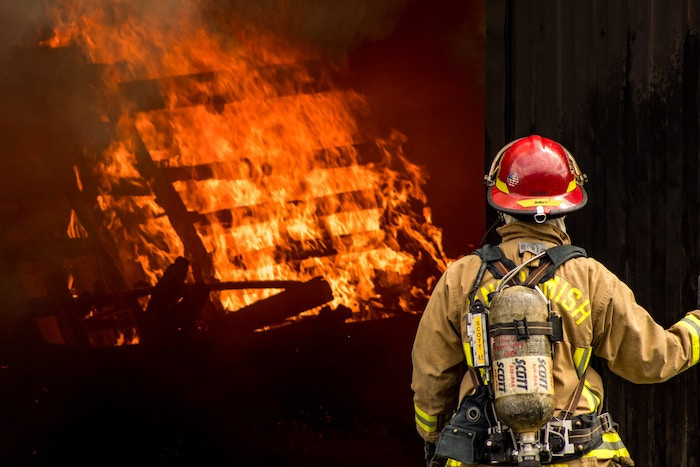
What Is a First Responder?
First responders are the first to arrive and assist at emergency scenes. This includes car accidents, natural disasters, or even terrorist attacks. Individuals who work as first responders must obtain...
First responders are the first to arrive and assist at emergency scenes. This includes car accidents, natural disasters, or even terrorist attacks. Individuals who work as first responders must obtain certifications and receive specialized training.
This group is the backbone of safety in our society. First responders require additional support apart from their central support systems. The Department of Homeland Security, Science, and Technology Directorate assists first responders, working across jurisdictions to further educate, support, and ensure their safety.
What Do First Responders Do?
The duties of a first responder are dependant on their specific training, position, and specialty. These individuals assess a natural or humanmade threat, then take the proper steps to de-escalate a situation. They may also provide life-saving care or transport those who need additional attention to a medical facility.
They are also charged with protecting public safety and wellbeing, even when it means putting themselves at risk to do so. Although not all first responders are members of the armed forces, they are often associated with military service. The risks, missions, and camaraderie they share make them unique.
Who Is Considered A First Responder?
There are more than a few different types of first responders. EMS, firefighters, and police officers are all examples of first responders. Members of the military are also considered first responders in specific situations.
Service members from the Army, Navy, Air Force, Marines, military reserve, and National Guard may all be called upon to help address emergencies, disasters, and more.
Emergency Medical Services (EMS)!
Emergency medical services, or EMS, refers to medical professionals who respond to, treat, and transport people in health crises. Emergency Medical Technicians, or EMTs, are paramedics, doctors, nurses, and other supporting medical personnel, which can be EMS members.
They work separately and in tandem as a coordinated response. Depending on the situation, they may mesh with other first responders and government officials, volunteers, and non-profits. They also work side by side with other first responders and are the group that primarily assists in emergency care.
Firefighters!
Firefighting can be a dangerous and life-threatening job, and thousands have lost their lives in the spirit of protection. Both paid, and volunteer firefighters are first responders. Besides responding to fires, firefighters may also be called to the scene of other emergencies, such as auto accidents and more. They may be trained to provide basic first aid, or if cross-trained as paramedics to provide advanced life support and transport to the hospital as needed.
Firefighters where several hats. While their primary task is extinguishing fires, other roles may include prevention, salvage, and even search and rescue operations. The United States Forest Service uses smokejumpers for aerial firefighting. These specially trained firefighting crews focus on operations in heavily forested locations.
Their efforts can save lives and help reduce damage to forests and wildlife. These firefighters work hard to suppress and isolate fires from spreading and reaching more populated regions and residential areas.
Police Officers!
Police officers are a critical group of first responders. Police officers are expected to protect people, property, and the community at large. That means they must be ready to respond to a variety of emergencies. From minor traffic incidents to major natural disasters, police officers help handle it all. In times of crisis, police officers may partner with EMT and firefighters to provide additional safety measures and precautions.
However, the central role is to protect others and enforce the laws. Their duties include apprehending criminals and preventing and detecting crimes. These tasks are performed to prevent violence against people, as well as destruction or theft of property and trafficking of illicit substances. Police officers' duties can subject them to physical altercations, and their functions may extend well after an event has transpired.
Crime-solving can take many months, depending on the crime, and they may be called to court to testify in criminal prosecutions.
The Importance of First Responders!
Without first responders, our lives would be much more difficult. If not for their bravery and skills of those who protect us, we wouldn’t have the peace of mind that comes with their presence and abilities.
Where would we be without an EMS who arrives on the scene of an accident to give emergency care and assistance? Firefighters put their lives on the line, protecting others from harm in the process. As do police officers. All of these professionals keep our society functioning and safe!
Appreciating First Responders!
First responders are people too. They experience the same emotions we do. Street, fear, and uncertainty are all part of their daily routine and professions. Having these men and women to protect our communities benefit our safety. They risk their lives to do so. Giving back is a great way to honor and support them, and to show the respect and admiration they deserve.
Every year on October 28th, National First Responders Day takes place. It's essential to appreciate and support and remember them year-round as well. Challenge coins are a great way to show support and honor those first responders for their service. Custom challenge coins can be designed for specific services, honors, or achievements. Though it began as a military tradition, today, challenge coins are given to EMS, firefighters, and police as well. They are a perfect way to recognize these first responders for their service to others.
You can also support local fundraising or donation efforts to organizations and charities. These organizations can include non-profit businesses and more.